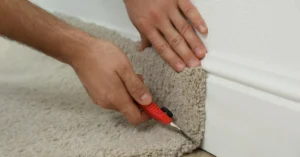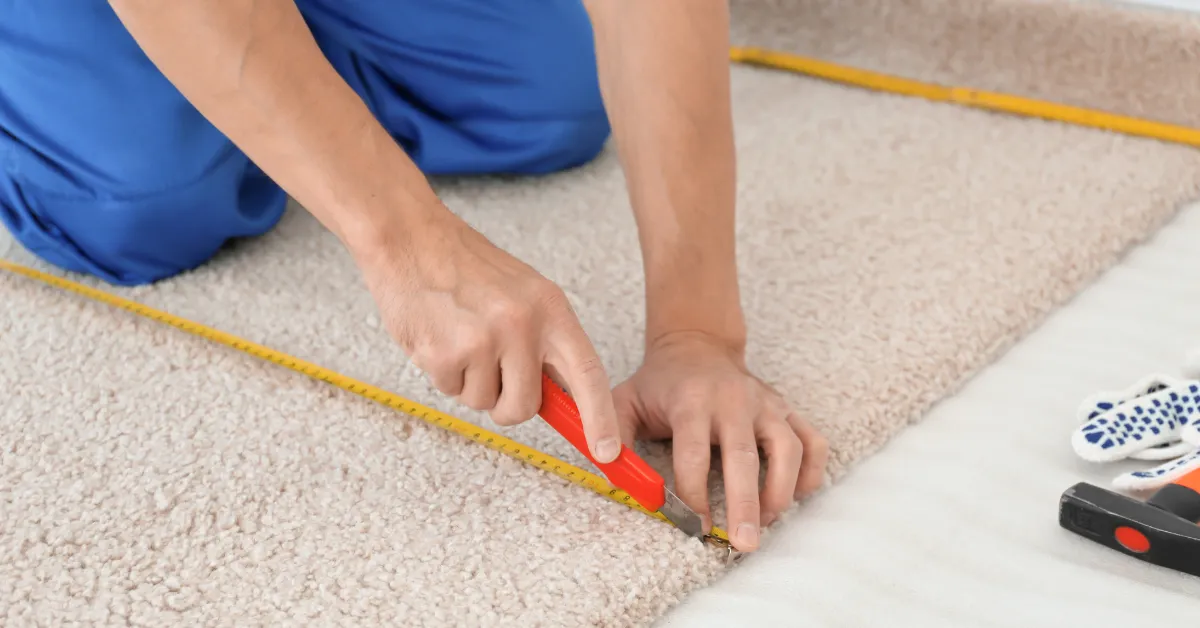When it comes to enhancing the comfort, appearance, and acoustics of your space, Professional carpet installation remains one of the top flooring choices for homeowners and business owners alike. Whether you’re planning a cozy update to your living room or a durable solution for an office space, understanding the process and options available can help you make an informed decision.
In this guide, we’ll walk you through everything you need to know about carpet installation, including the benefits, types of carpet, the installation process, and how to choose the right carpet installer for your project.
Why Choose Carpet for Your Floors?
Before diving into the technicalities of installation, it’s important to know why carpet is a popular flooring option. Carpet provides:
1. Comfort and Warmth
One of the primary advantages of carpet is its soft texture underfoot, making it ideal for bedrooms, living areas, and nurseries. It also adds a layer of insulation that helps maintain room temperature.
2. Noise Reduction
For homes with children or multi-level buildings, carpet helps absorb sound, reducing echo and footstep noise—especially important in commercial carpet installation projects for offices or hotels.
3. Safety
Carpet offers a non-slip surface, reducing the risk of falls. This makes it a safer option in homes with toddlers or elderly residents.
4. Design Flexibility
With a wide range of colors, patterns, and textures, carpet can match virtually any décor. From sleek and modern to traditional and warm, there’s a carpet style for every space.
Types of Carpet and Padding
Choosing the right carpet starts with understanding your options. Here are a few common types of carpet:
- Plush Carpet – Dense and soft, perfect for bedrooms and formal living rooms.
- Berber Carpet – Loop-style that’s durable and great for high-traffic areas.
- Frieze Carpet – Features twisted fibers for a casual, contemporary look.
- Patterned Carpet – Combines cut and loop styles to create patterns and textures.
Equally important is the carpet padding underneath. Padding adds cushioning, extends the carpet’s lifespan, and enhances insulation and soundproofing.
The Carpet Installation Process
Professional carpet installation services follows a step-by-step process that ensures a smooth, long-lasting finish.
1. Measurement and Estimation
Before anything else, accurate carpet measuring is crucial. A professional will assess your room dimensions and calculate the amount of carpet and padding required, minimizing waste and cost.
2. Floor Preparation
The subfloor must be clean, dry, and level. In some cases, this may involve removing old carpet, repairing subfloor issues, or applying a moisture barrier.
3. Installing Carpet Padding
Once the subfloor is prepped, carpet padding is laid down and secured. High-quality padding improves comfort and durability.
4. Laying the Carpet
Using specialized tools like power stretchers and knee kickers, the installer carefully lays and stretches the carpet to avoid wrinkles and bubbles. Wall-to-wall carpet installation ensures a tight, seamless fit.
5. Trimming and Finishing
Edges are trimmed neatly, and the carpet is tucked into baseboards or secured with metal strips at thresholds.

Why Hire a Professional Carpet Installer?
While DIY carpet installation is possible, it often results in misaligned seams, wrinkles, or early wear. A professional carpet installer ensures:
- Proper carpet stretching and placement
- Seamless transitions between rooms or flooring types
- Efficient and mess-free work
- Manufacturer-compliant installation (important for warranties)
Hiring pros is especially critical for commercial carpet installation, where precision and durability are non-negotiable.
When to Replace Old Carpet
Not sure if it’s time for carpet replacement? Look for these signs:
- Stains that don’t come out
- Worn-down areas or matting
- Persistent odors or allergens
- Outdated design or color
- Water damage or mold
If your carpet is over 10-15 years old, it might be time to consider an upgrade.
Carpet Care Tips After Installation
To protect your investment and extend the lifespan of your new flooring, follow these carpet care tips:
- Vacuum regularly to remove dirt and debris.
- Use mats and rugs in high-traffic areas.
- Clean spills immediately to prevent stains.
- Schedule professional carpet cleaning once or twice a year.
- Rearrange furniture occasionally to prevent excessive wear.
Final Thoughts
Whether you’re upgrading your home or outfitting a commercial space, carpet installation offers the perfect blend of comfort, style, and functionality. From selecting the right carpet and padding to understanding the installation process, being well-informed allows you to make flooring choices you’ll feel good about.
For flawless results and lasting quality, trust THE CARPET MAN to handle your carpet installation with precision and care. With expert planning and professional service, your new carpet will enhance the beauty and comfort of your space for years to come.

